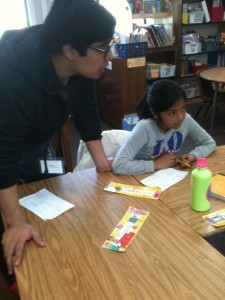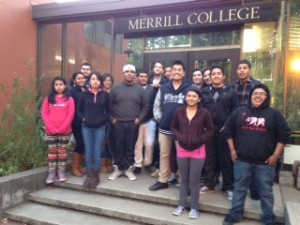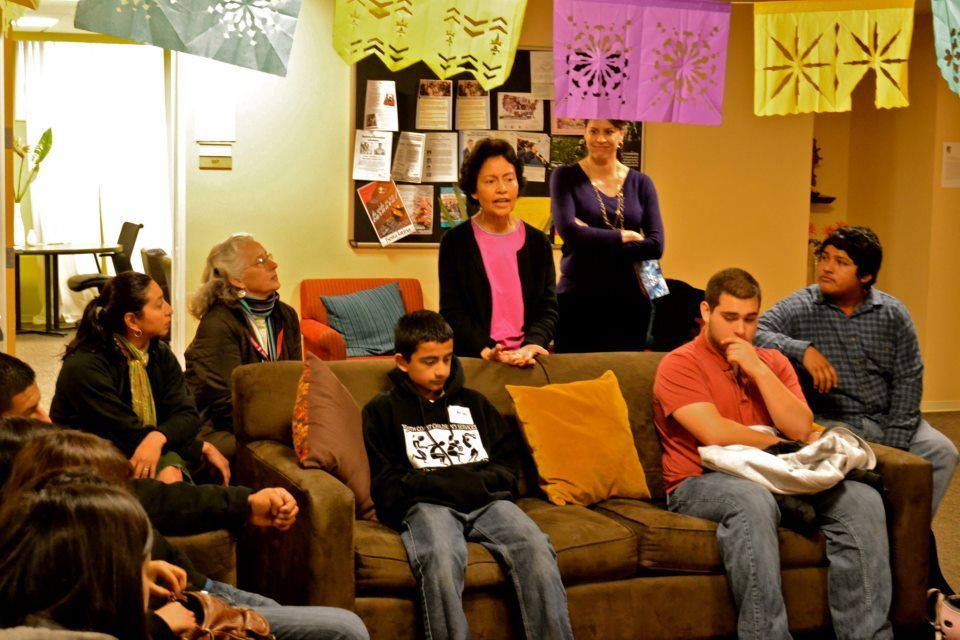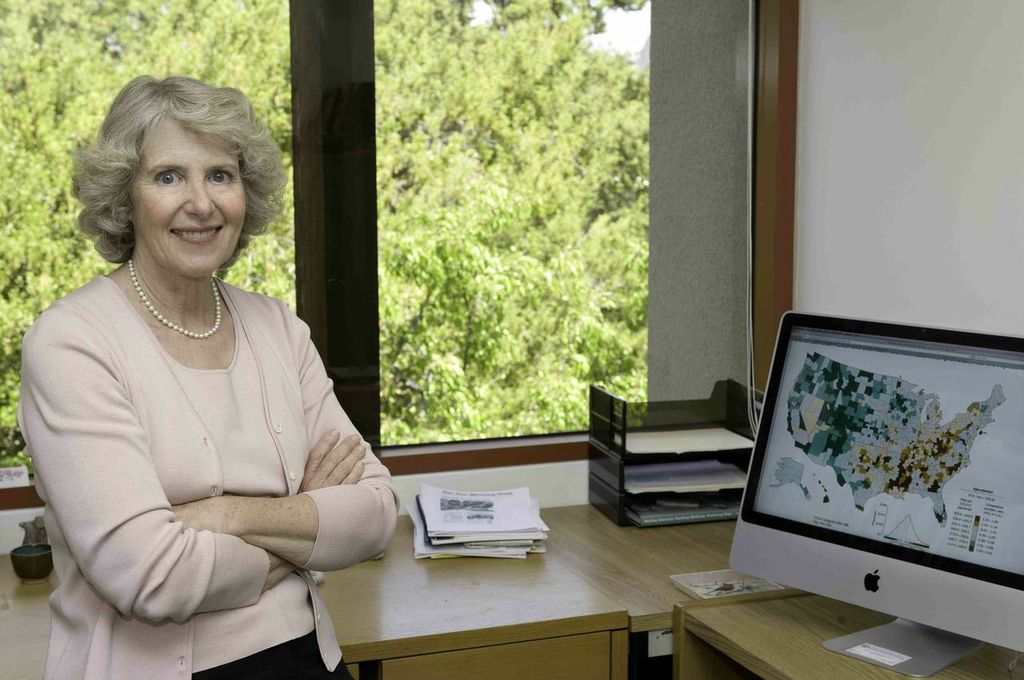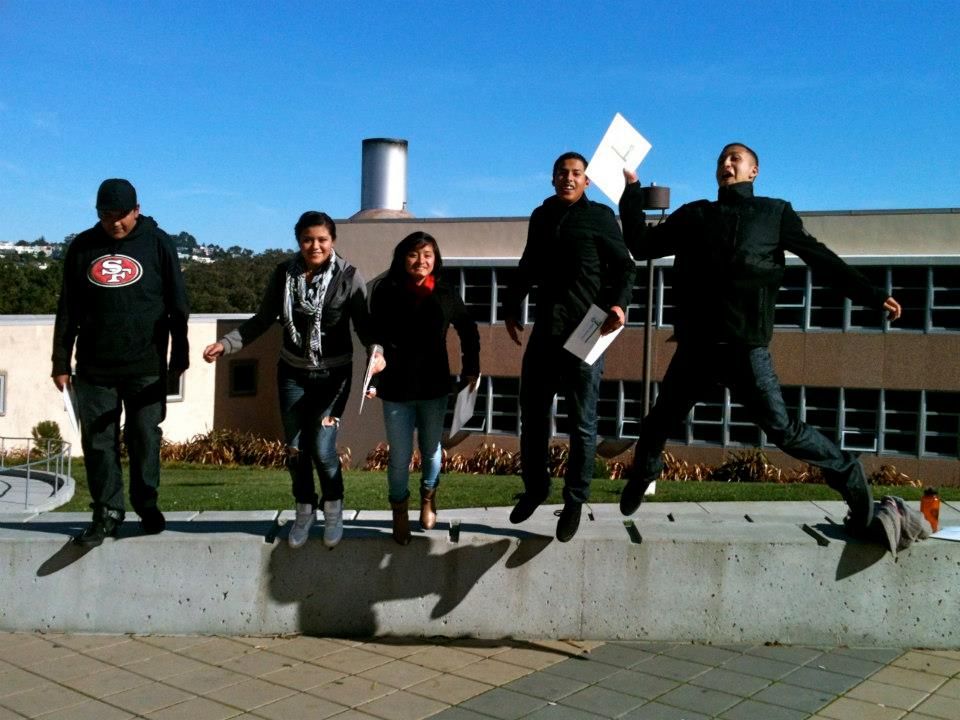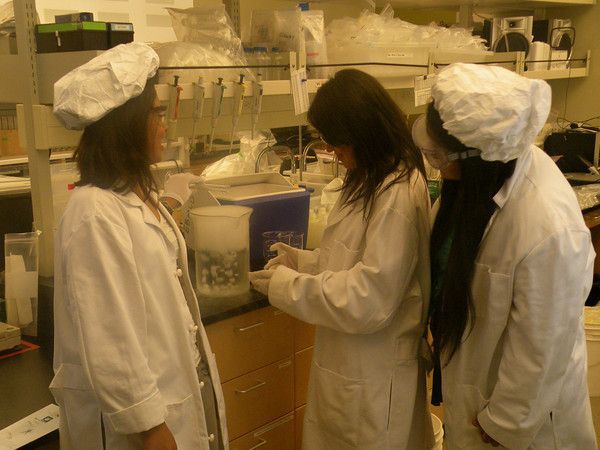What happens when you give a teenager a summer job? A 15-year-old girl learns to fit in with her co-workers. An 18-year-old boy makes new friends from around the world. A mother watches her 16-year-old daughter learn the value of hard work, and their relationship is transformed.
Puente’s Youth Leadership and Employment Program has always reached beyond giving young people the chance to earn an hourly wage. It’s also about exposing them to the world of adulthood, building a vision for college, giving them marketable job skills, and improving their academic performance at school.
Puente youth also go on several tailor-made summer field trips, which are both fun and educational. This summer, Puente took the group to the Monterey Bay Aquarium, to Genentech, to the capitol building in Sacramento, and to San Francisco’s Chinatown, Flood Buidling, Coit Tower, De Young Art Museum, and Fisherman’s Wharf. Some also toured Facebook.
The experience transforms the youth in unexpected ways. Back in June, Sofia Betteo, 15, was feeling like a fish out of water at Puente’s summer youth program orientation. She and her mom had just moved to the South Coast from Belmont, a city on the Bayside, and she was preparing to switch from a high school of 3,000 students to one of 95.
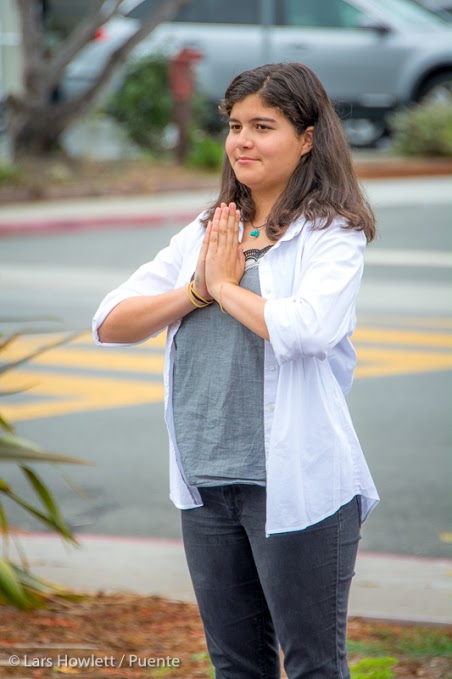
Sofia participates in yoga with some of the children at the Half Moon Bay Library.
She didn’t really speak to anyone during an overnight camping trip to help the 38 Puente youth get to know each other. A few days later, all of the teens filed into the Pescadero Elementary multipurpose room and formed a circle with Puente staff members to take turns introducing themselves.
Puente Executive Director Kerry Lobel started the icebreaker by introducing herself and handing a green hula-hoop to the next person, who spoke, then handed it off to someone else. Many of the students barely spoke above a whisper. “Louder!” called Lobel. (Public speaking is one of the skills Puente youth learn over the summer.)
Later, after meeting many new people at Puente, Betteo then met a new group of co-workers at the Half Moon Bay Library, her placement through Puente, assisting with a children’s reading program.
It was her first summer job, and she enjoyed learning how to read to 6-year-olds. She made them snacks and supervised child yoga and playtime. She also helped the library staff reshelf books, and tutored an older child who struggles with his English.
By August, Sofia had gained a strong measure of confidence.
“I think getting to know everybody was a big deal – your co-workers, people at Puente. Now I see that everyone is part of a tight community,” she says. “It was really nice to see that and how I fit into that. It was a nice surprise.”
Since 2007, Puente has been the largest employer of youth on the South Coast and a strong bridge to adulthood, helping students develop their own resumes and cover letters and working with them on their personal statements for college, starting when they are as young as 14.
Every summer, Puente offers a credit recovery course to students who need to boost their grades in subjects like English and Algebra. This summer, Puente hired Shannon White to help students meet their academic requirements and keep them intellectually stimulated over the months off from school. White, then a Lilly Endowment Teacher Creativity Fellowship Recipient and a high school teacher in Indiana, volunteered with Puente last summer. This year she helped students meet their summer reading assignments and write their book reports.
White often found herself reading to youth who struggle with reading to themselves. “I’m not sure how much students have had of that in their lives,” she says.

Shannon meets with a student to discuss the student’s academic schedule and resources.
“I’ve been astounded by the life experiences these students have,” adds White. “You can’t tell from looking at them, but some of these kids have had some pretty traumatic experiences or complicated living experiences and they struggle academically.”
Until this summer, Puente received federal funding to pay people like Shannon White as well as youth salaries. Now that source of funding is gone, and the Youth Leadership and Employment Program is imperiled.
Thanks to an intervention by San Mateo County Supervisor Don Horsley and generous community support in the form of individual donations, Puente has raised $108,500 so far this summer. That’s excellent news in the short term, but it does not address the question of sustaining the youth program without depleting Puente’s reserves, says Kerry Lobel, Executive Director of Puente.
“There’s some relief on some of the summer youth salaries, but it doesn’t address the amount of funding that was going to pay for our support staff,” she says.
Puente needs to meet the remaining funding gap for youth salaries of $81,500 by the end of the summer. Please click here to donate. A donation of $493 supports one Puente youth for one week.
It would not be an understatement to say that Puente’s youth program has helped Cristian Antonio springboard into adulthood. The 18-year-old has worked with Puente every summer since he was 14. In past years he has helped run the LHPUSD Panther Camp, tutoring younger students in English and math. One summer he worked at Pie Ranch through a Puente partnership called Homeslice, a storytelling project that helped him hone his skills in public speaking.

Cristian participates with campers at camp.
What he always wanted was to work at YMCA Camp Jones Gulch in La Honda as a counselor and this summer, he got his wish. “I like to be that big brother,” he says.
Antonio loved his summer supervising children as they hiked and played and swam and made art together. He liked the camp itself so much, in fact, that camp administrators got wind of it and offered him a year-round job – something he can do on weekends while he attends community college next year.
But the best part of all was the week of camp orientation, where he connected with fellow counselors from the UK, Australia, France and Poland. They became such good friends that he intends to visit some of them next year in Europe – a first for him.
“We talked all night long. I can’t explain it, there’s like a bond now,” he says.
Isabel Gonzalez also formed an unexpected bond this summer – with her mother, Evelia Ramirez. The single mom works long hours at a restaurant to support her children, including Gonzalez, who is 16. Until this summer, they fought quite a bit.

Evelia and Isabel together.
“Isabel used to tell me, ‘Why are you tired? You don’t do anything at your job,’” recalls Ramirez. “She would yell and scream. She would always want stuff and I wouldn’t want to give her money for it.”
Those tensions disappeared when Gonzalez started her first-ever summer job in June, working at the Half Moon Bay Library in the same reading program as Sofia Betteo. Suddenly she knew what it was like to be on her feet much of the day, to exert herself, and to meet an employer’s expectations.
As a result, she started to see her mother in a very different light.
“Her perspective toward me has changed,” says Ramirez. “I think that her job is making her think and understand what comes with working – the idea of it.”
Ramirez says that in the course of two months, her daughter has become patient and conscientious. She is now a pleasure to live with and is more responsible. She used her first few paychecks to replace a broken cell phone, and she has been taking better care of it.
“It think the job has been so beneficial for her – especially when she got her first check,” laughs Ramirez.
Sofia Betteo, Cristian Antonio, Isabel Gonzalez and other Puente youth need your help today. Please click here to donate to the Youth Leadership and Development Program. Thank you!

